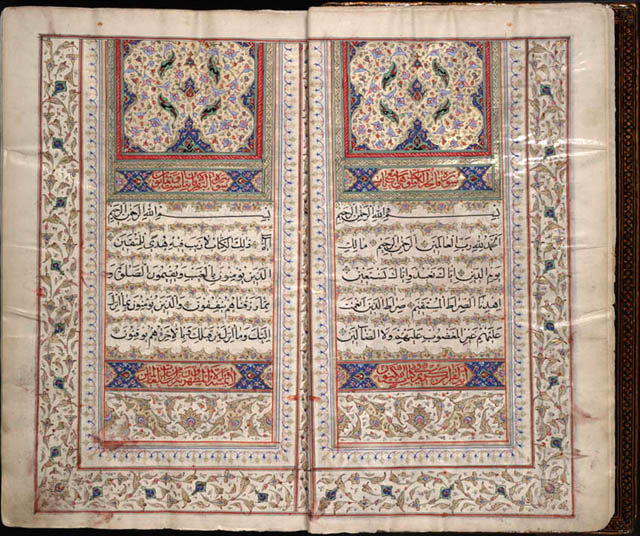 The Boston Globe is reporting on the near-completion of a critical edition of the Koran. To those of us who have a different holy book this should seem to be of little interest. We have our own critical editions of what are now called the Old Testament and the New Testament in, respectively, Hebrew/Aramaic and Greek. Since 1516 manuscript copies of these texts have been edited and compared, and archeological finds for half a millennium have refined that text. Both testaments have critical editions in process right now, though it seems these projects are not worth bringing to the public’s attention.
The Boston Globe is reporting on the near-completion of a critical edition of the Koran. To those of us who have a different holy book this should seem to be of little interest. We have our own critical editions of what are now called the Old Testament and the New Testament in, respectively, Hebrew/Aramaic and Greek. Since 1516 manuscript copies of these texts have been edited and compared, and archeological finds for half a millennium have refined that text. Both testaments have critical editions in process right now, though it seems these projects are not worth bringing to the public’s attention.
The Koran is different, however. Critical study of its text is in its infancy, for a number of reasons. First and foremost is the view of the origin of the Koran. The most common phrase one encounters when trying to sort out Islamic views of the process of “inspiration” of the Koran is that the words (vocables) of the Koran came to Mohammed as water through a pipe, so that the Koran does not contain the words of Mohammed but the words of the Islamic deity. Because the words are divine word, with no human role apart from, essentially, transcription, an edition which points out that many humans produced many forms of the text will prove to be problematic. Not least because it is produced in the heathen West, using heathen critical methodologies. As the Boston Globe article concludes:
Still, questioning the origins of the Koran itself, he adds, is a special case. Most Christians believe that, while the Bible is holy scripture, it was written by various prophets and disciples. To Muslims, the Koran is different. “For Muslims, the Koran is the literal word of god,” says Dagli. “They don’t consider Muhammad to be the author of the Koran. It came straight down from heaven, and you won’t find a Muslim who would say otherwise. That’s non-negotiable.”
I wonder, though, if many of our pew-sitters don’t have an identical view of the Bible to what a Muslim would claim about the Koran. What is the Bible? What is its source? How does the divine and human interact? Or did God speak in the Bible through people as water comes through a pipe, so that “Word of God” in Christian usage means that in the Bible is a collection of pure words of God with no human role whatsoever? Christianity has struggled with these questions for 500 years, and the approaching 400th anniversary of the printing of the 1611 King James translation will only throw these questions to the fore again.

Leave a Reply
You must be logged in to post a comment.